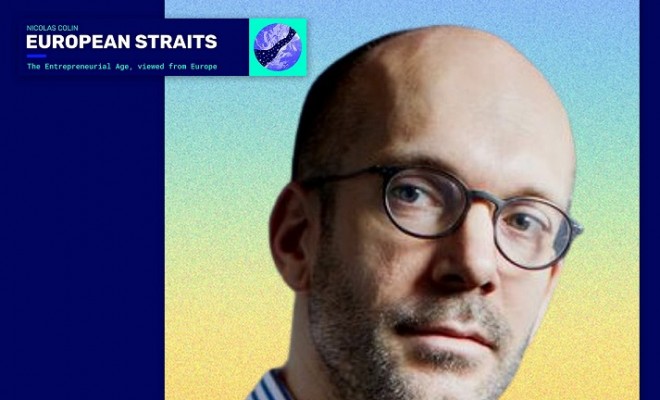
Cosmopolitanism w/ Simon Kuper
My first memory of Simon Kuper is a column he wrote in November 2013 in The Financial Times about The great middle-class identity crisis. It made a deep impression on me, as we had just started The Family in Paris. The structural shifts impacting the middle class that Simon had written about were the very same I was witnessing working with early-stage startups.
- By definition, a paradigm shift is all about a changing representation of the world, and a corollary is that we often lack words to describe what we do and who we are.
Here’s an excerpt from Simon’s foundational column:
That’s been the middle-class experience for ever: people have a professional identity. We are what we do. We choose professions that suit our identity, and then those professions enhance our identity… But that era is ending. With the economic crisis and technological change (robots are taking over the world), ever fewer of us have satisfying jobs or stay in the same profession for life. People are ceasing to be their jobs. That is forcing them to find new identities.
Over the years, I kept quoting this column over and over, including in my book Hedge (about designing a new social contract for the Entrepreneurial Age):
Today the vast majority of people in the West still identify as middle class. But the very concept of the middle class has evolved through time. When I grew up in the 1970s and ’80s, the cardinal value of the middle class was stability. Most people had a fixed place in the world and defined themselves through what they were doing in life.
As for today, being part of the middle class looks more like the main character in Steven Soderbergh’s Magic Mike: laboring during the day as a construction worker, making money as a stripper in night-clubs and private parties, and steadily describing himself as an “entrepreneur”.
As in the case of Magic Mike, gone is the sense of economic security that provided middle class workers with a clear identity. Now we live in a world where job situations are unclear. People are no longer certain about what the future holds or even what their occupation is. Is Magic Mike a construction worker, a stripper, or an entrepreneur? Nobody knows, and so he is forced to decide for himself—in what the Financial Times columnist Simon Kuper calls the “great middle class identity crisis”.
All these years, I had no idea that Simon was in fact so close to my world: he had been living in Paris the whole time; he is married to Pamela Druckerman, whose best-selling book French Children Don’t Throw Food (Bringing Up Bébé in the US) was often mentioned in French society (we can only rejoice in a book that makes the case that we French are better at raising children). And we’ve had common friends, such as the historian Patrick Weil.
Συνέχεια ανάγνωσης εδώ
Πηγή: europeanstraits.substack.com




